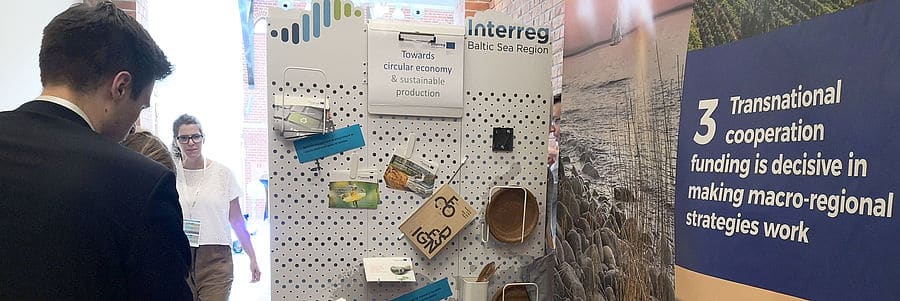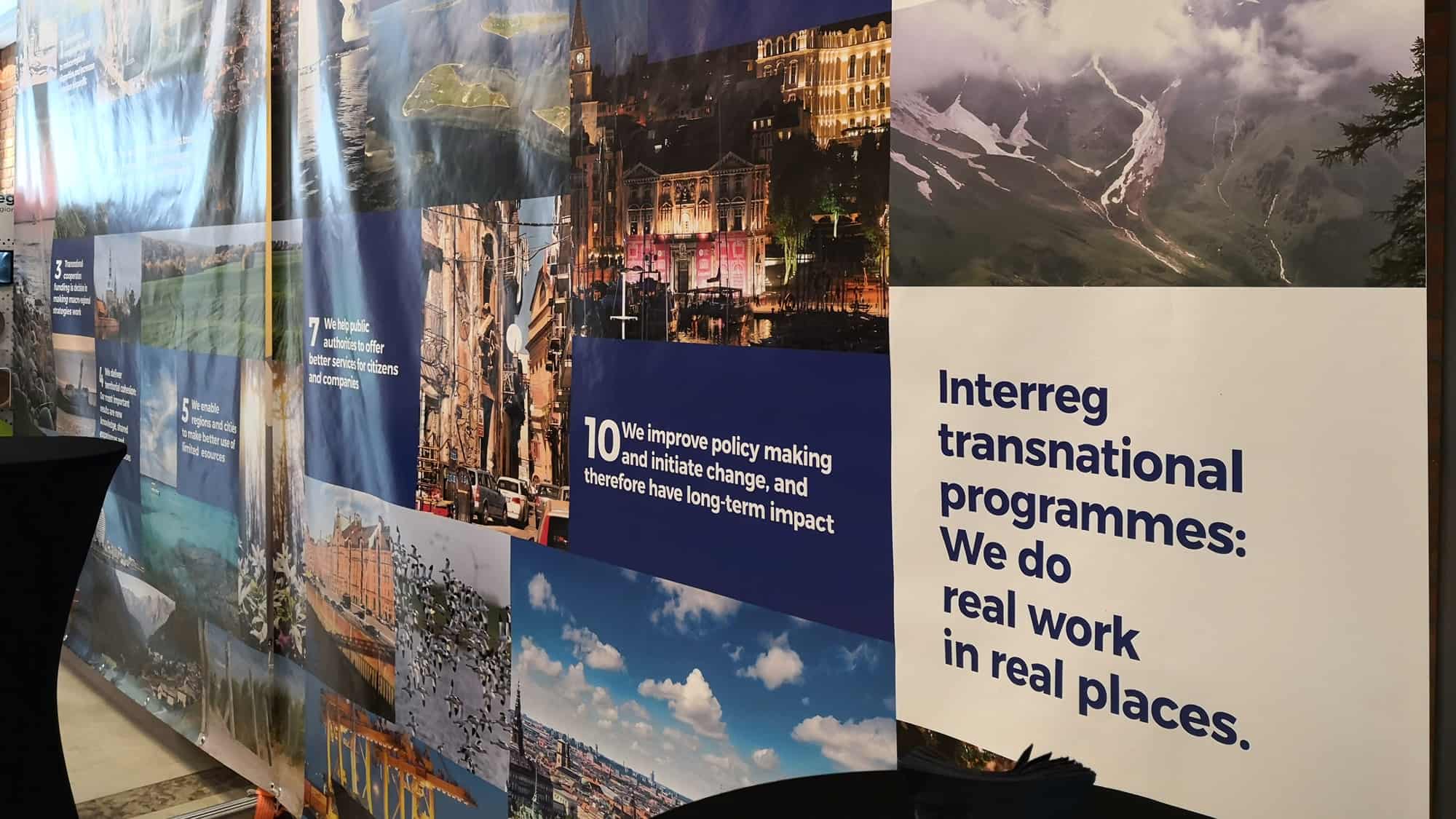Environmental challenges cannot be solved by each country separately. By sharing knowledge and exploring new terrain, transnational cooperation enables to tackle such pressing issues. This was well reflected at the discussions held during this year’s Annual Forum of the EU Strategy for the Baltic Sea Region (EUSBSR), encouraging to ‘reduce, reuse and rethink’ approaches for the benefit of the environment and people.

Reduce-reuse-rethink approach to exhibitions
Interreg Baltic Sea Region and Interreg Central Europe were present at the Annual Forum of the EU Strategy for the Baltic Sea Region (EUSBSR) with an exhibition stand, which well corresponded to the sustainable approach of the event. The re-usable exhibition wall presented ten benefits of Interreg transnational cooperation, and was set up on a scaffolding that will be recycled into balustrades.
The Interreg stand itself allows for flexible rethinking and reusing exhibits. This time, various initiatives of the Interreg projects related to circular economy and more sustainable use of water resources in the Baltic Sea region were highlighted. The participants of the EUSBSR Annual Forum could, for example, find out more about the Baltic Smart Water Hub by the IWAMA project symbolised by sprout pencils one could re-use to grow a plant, as they contain seeds. They could watch a movie about circular public procurement by the Circular PP project. Eatable plates by EcoDesign Circle project and reusable bags by Intereg Central Europe turned out to be very popular among the participants, too.
Interreg in support of the EUSBSR
Interreg Baltic Sea Region co-finances as many as 60 flagship projects with EUR 181.9 million (EUR 136.1 million of the European Regional Development Fund), which directly support the implementation of the EUSBSR Strategy. In addition, the Programme increases the institutional capacity for macro-regional cooperation. It gives Seed Money funding for the preparation of flagship projects. It also provides co-financing to the coordination work done by the priority area and horizontal action coordinators, to the organisation of Annual Strategy Forums, as well as specific communication and evaluation activities.







